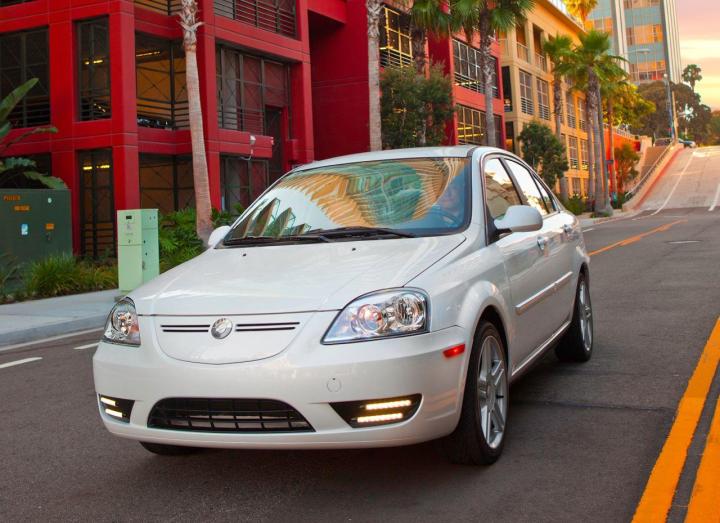
Who doesn’t love a store closing sale?
Coda Automotive left the electric car business earlier this year, but there are still a few of its electric sedans lying around and they’re being sold at a “substantial discount.” At least, that’s what the new website Coda Cars is announcing.
Note that the name has changed to “Coda Cars,” which is actually a consortium of two organizations: Club Auto Sales and Ready Remarketing. It is these two groups that have taken charge of the remaining EV inventory. The real Coda still exists but only as a grid energy company.
Exactly how much of a discount will customers be getting? Speaking with AutoBlogGreen, Ready Remarketing’s Rick Curtis said his company won’t disclose pricing because it doesn’t want to upset the market value for current owners. Curtis, a former Coda dealer, did let slip that one glider (a complete chassis without the powertrain) is being offered for $7,500. You’ll have to forgive us but $7,500 for a rolling EV shell that looks like an old-gen Kia Rio is laughable.
The Coda Cars consortium has 100 gliders and 50 complete cars in its inventory. Eleven of those cars are export models with 36-kilowatt-hour battery packs (domestic cars have 31-kWh packs) and can’t be registered in the U.S.
Curtis told AutoBlogGreen he is also entertaining offers for the entire lot.
In contrast to fellow automotive startups Fisker Automotive and Tesla Motors, Coda emphasized economy over luxury. Its EV was so no-nonsense that it didn’t even have a name, which speaks volumes.
What the nameless EV did have was a chassis based on the compact Chinese Haifei Saibao, the aforementioned 31-kWh lithium-ion battery pack, and a 134-horsepower electric motor. Top speed was 85 mph and range was 88 miles. No word on the top speed of the $7,500 rolling shell, though.
Coda hoped to undercut other electric cars with this simple sedan, but its $37,250 base price steep given its power, range, and utilitarian design.
Buying cars from defunct carmakers or brands isn’t unheard of, but there are a few things consumers might want to consider before picking up a leftover Coda. Realize that Coda might have some spares lying around but it won’t for long. Even if you can get a hold of replacements, you’ll have to pay for them – and the labor costs – out of pocket, as the warranties are void.
So if you’re looking for a bargain, the leftover Codas may be for you. Just don’t expect any of the perks that come with new (or used) car ownership – or a powertrain for that matter.
Editors' Recommendations
- EV warranties aren’t like those for non-electric cars. Here’s what you should know
- Don’t let the gimmicks fool you. The Ioniq 5 N is a serious track car
- Porsche’s most powerful production car is an EV
- Why your EV’s voltage matters, and what it means for your car’s charging speed
- The Kia EV9 is coming, but you should wait to buy one. Here’s why


